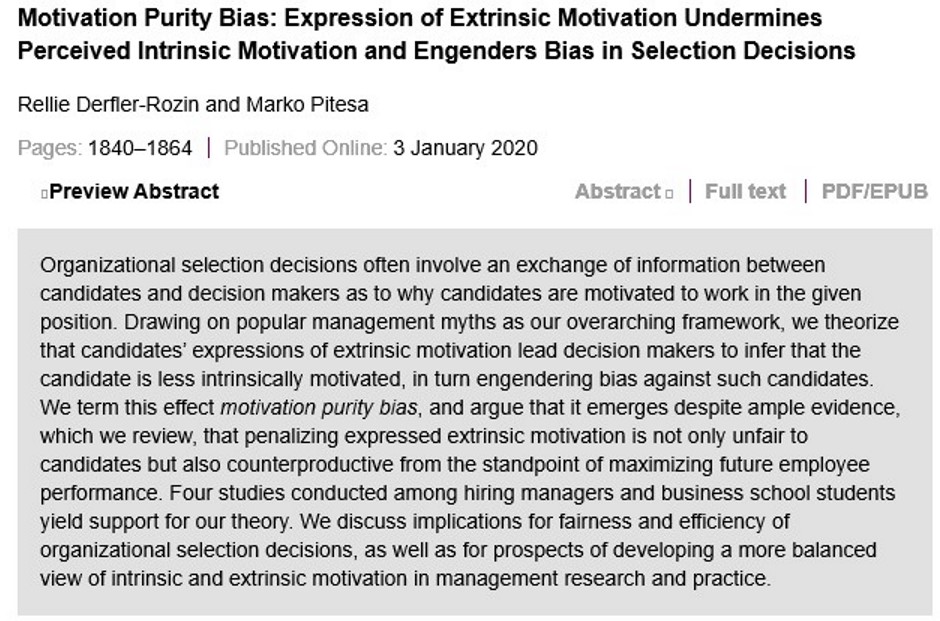Recently, I read an interesting paper about the connection between extrinstic and intrinstic motivation.
The main arguments of this paper are as follows:
Hypothesis 1: Expression of extrinsic motivation negatively affects perceived intrinsic motivation.
Hypothesis 2: Expression of extrinsic motivation negatively affects selection outcomes by reducing perceived intrinsic motivation.
It is interesting because it stands on a decision maker’s perspective. For the first time, we know that formal business eduction unexpectedly has a negative effect on decision makes’ choices for applicants. If, though it is often the case, interviewers show their interests in external benefits, managers will see them differently. They tend to think that applicants are caring more about their benefits instead of the intristic achievement. However, this is not true. The conflict between extrnstic and intristic is actually not as antagonistic as we may hold. In fact, status thriving and achievement thriving can also be regarded as extrinstic motivation, and they can boost people’s intrinstic motivation.
The method section interests me the most. In this paper, the author conducted five experiments to test their hypothese, including one pilot study intended to validate the main arguments (Candidates do often inquire about or express satisfaction with extrinsic features of the job; Expressing satisfaction with extrinsic features of the job or inquiring about them is done in a benign manner and is not associated with greed).
In study 1, business students are recruited. They are required to evulate the kind of motivation present in the cover letter and the negative impression associated with the applicants (as control variable).
Study 2 was conducted on an online playform. Participants were told they would be taking part in a hiring simulation in which they are recruiting for a Project Finance Consultant job.
Study 3a used a professional actor to play the interviewer. And participants are told to see the video.
Study 3b used the same material and trancript in study3a, but used 2*2 scenario-based experiment.
In general, this research is unique and interesting. But I have a concern: in top business school, students are often required to participate in survey or experiment in exchange for credit. Given that a lot of professors are doing so, will the results be more likely to be significant? After all, these students are skilled labor to some extent. Maybe I am overreacting about this, these students will graduate every four years.
